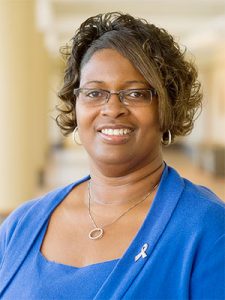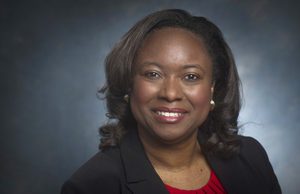By Solomon Crenshaw Jr.
For The Birmingham Times
The recent death of 43-year-old actor Chadwick Boseman brought heightened attention to colorectal cancer and served as a wake-up call about the importance of preventative care, especially for African-Americans, said several area health providers.

“I think [Boseman’s] untimely death is a wakeup call for everyone in a number of ways,” said Claudia Hardy, Program Director at O’Neal Comprehensive Cancer Center in UAB’s Office of Community Outreach and Engagement. “It reminds us that we should be vigilant about taking care of our health and being vigilant about staying connected to a healthcare system wherever possible.”
For Dr. Monica L. Baskin, professor and vice chair for culture and diversity in the Department of Medicine at UAB, awareness of colorectal cancer is deeply personal. Baskin was a senior in high school when she lost her father to colon cancer at age 51.

Growing up in Atlanta, Baskin witnessed firsthand how difficult it was for many in her community to get the health care they needed. Then, when her father died of colorectal cancer only a few months after diagnosis during Baskin’s senior year, something in her sprang into action.
“As a teenager, as a daddy’s girl, that was a fairly traumatic experience for me,” she said. “No one needs to die from colorectal cancer.”
His death awakened in Baskin a greater concern about cancer and led her to pursue health disparities research, particularly among African Americans.
“Colorectal cancer is one of the major cancers that we focus a lot of our outreach and education on primarily because it is so preventable and there are so many treatment options that are available if you can get diagnosed early,” Baskin said.
With frequent and regular screenings, clinicians can locate and remove pre-cancerous polyps before they become malignant, she said. Realizing that helped Baskin jumpstart a passion for better understanding and addressing health disparities that would eventually propel her into her career in preventive medicine at UAB.
“At the core, I don’t want anyone else to lose their father so early in their lifetime,” Baskin said. “That drove me at the beginning to do the work I do today.”
The death of Boseman, the star of the Black Panther movie franchise has created a dialogue about the disease, just by the number of stories generated both in print media and in conversations and television, radio (and) social media.
“The sheer awe of what he was going through over the last four years of his life and being able to produce major motion pictures in that time period is definitely a wake-up call,” Baskin said.
Boseman portrayed several real-life, historical figures, including baseball trailblazer Jackie Robinson; the first Black Supreme Court Justice Thurgood Marshall and music legend James Brown. But his star shined brightest after his portrayal of King T’Challa, the superhero made famous initially in Marvel comics.
The Office of Community Outreach & Engagement within the O’Neal Comprehensive Cancer Center at UAB is focusing on two parts of the Boseman story when it comes to colorectal cancer – age and race.
“There are some studies that have come out showing that colorectal cancer is happening in younger populations,” Baskin said. “That certainly is important to note with his age at 43. My father passed a couple decades ago but at 51 that was really young for him as well.”
Baskin said it may be best not to wait until age 50 to get a colorectal screening if one has that disease in his family history.

Daniel I. Chu, M.D., a scientist at the O’Neal Comprehensive Cancer Center at UAB and an associate professor in the UAB Division of Gastrointestinal Surgery, said what happened with Boseman is tragic, but unfortunately is a story seen too often at UAB.
“What’s coming to the forefront of Chadwick Boseman’s death is that it is happening to younger people, a group for which there are no good screening recommendations,” Chu said. “We are seeing the younger group have higher incidence of colorectal cancer, and that is scary. If anyone has symptoms, particularly rectal bleeding or abdominal pain, or if there is any question mark in their health that is unusual, then that person should get evaluated. The system of medical providers also needs to have a higher index of suspicion and consider the words ‘colorectal cancer’ as a suspect.”
Chu also notes that colorectal cancer incidence is higher among African Americans.
“I know all too well the pain that cancer can bring to a family,” Baskin said. “It is my sincere desire that the popularity of Chadwick Boseman and the sadness over his death make more people, particularly Black men and women who are at higher risk, aware of colorectal cancer and make them take the necessary steps to protect themselves and their families.”
For more on colorectal cancer visit here.
UAB.edu/news/ contributed to this post.





